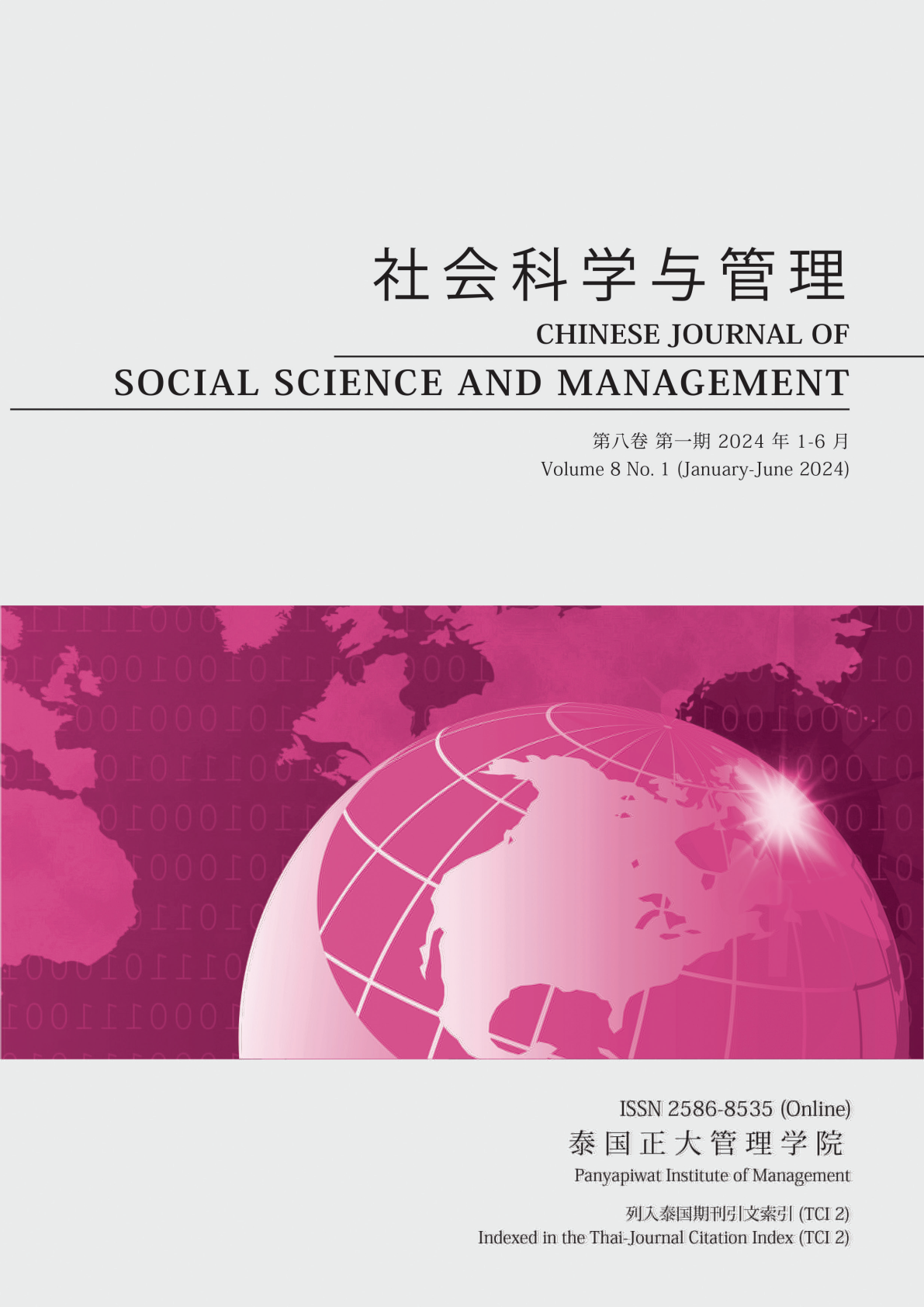THE INFLUENCE OF CSR ON THE PROMOTION OF CORPORATE BRAND VALUE
Main Article Content
Abstract
To a large extent, the competition between enterprises is the competition of brands, especially in the current environment where there is a surplus of low-end and medium-end products and insufficient supply of high-end products in China. Thus, it is necessary to improve the quality of the product supply, strengthen the brand value of enterprises, and improve their quality. Brand competitiveness is very important, and many scholars and practitioners also seek ways to enhance the brand value of enterprises. Based on the annual data of 66 listed companies from 2010 to 2019, this study uses a regression model with moderating effect to analyze the relationship between the perspective of corporate social responsibility fulfillment and corporate brand value. The results show that corporate social responsibility has a significant positive impact on improving brand value and technological innovation can moderate the relationship between corporate social responsibility and corporate brand value. Moreover, there is heterogeneity in the relationship between corporate social responsibility and brand value. which is to say that, the nature of the firm is also a moderator of the relationship between corporate social responsibility and brand value. Based on the conclusions of this empirical analysis, suggestions on how to enhance corporate brand value by improving the level of corporate social responsibility performance are proposed.
Article Details

This work is licensed under a Creative Commons Attribution-NonCommercial-NoDerivatives 4.0 International License.
Chinese Journal of Social Science and Management Editorial Division
The Office of Research and Development, Panyapiwat Institute of Management
85/1 Moo 2, Chaengwattana Rd., Bang Talat, Pakkred, Nonthaburi 11120, Thailand
Tel. 02 855 01048 E-mail: cjssm@pim.ac.th
References
Ansoff, H. I. (1965). Corporate strategy: An analytic approach to business policy for growth and expansion. McGraw-Hill Companies.
Barney, J. B. (1999). How a firm’s capabilities affect boundary decisions. Sloan Management Review, 40(3), 137-145.
British Medical Journal Publishing Group. (1940). Karl pearson. BMJ, (4136), 617.
Donaldson, T., & Preston, L. E. (1995). The stakeholder theory of the corporation: Concepts, evidence, and implications. Academy of management Review, 20(1), 65-91.
GYbrand. (2020). 2020 Top 500 most valuable brands in china (complete list included). Excellent Research Institute. https://t.hk.uy/aRZs
Hart, O., & Zingales, L. (2016). Should a company pursue shareholder value? Columbia Business School, 12, 1-25.
Liu, J. Q., & Song, X. Z. (2012). The levels and motivations of corporate social responsibility from the perspective of contract theory: An analysis based on a questionnaire survey. Financial Research, (6), 68-71. [in Chinese]
Luo, X., & Bhattacharya, C. B. (2006). Corporate social responsibility, customer satisfaction, and market value. Journal of Marketing, 70(4), 1-18.
McWilliams, A., Siegel, D. S., & Wright, P. M. (2006). Corporate social responsibility: Strategic implications. Journal of Management Studies, 43(1), 1-18.
Penrose, E. (1959). The theory of the growth of the firm (3ed ed.). Oxford University Press.
Rachel, M. (2012). Corporate social responsibility in cooperrative entreprises: Folksam, coompanion, HSB and coop konnsum [Bachelor’s thesis]. University of Gävle.
Wan, J. H. (1998). Attach importance to and strengthen the liquidity management of my country’s commercial banks. China Finance, (6), 16-17. [in Chinese]
Yi, F. P. (2013). The relationship between corporate social responsibility and brand value: A study based on stakeholder theory. Theoretical Circle, (9), 186-189.
Zhang, Z. G., Liu, X. X., & Zhang, Q. (2009). Corporate social responsibility and financial management reform: A study based on stakeholder theory. Accounting Research, (3), 54-59. [in Chinese]


